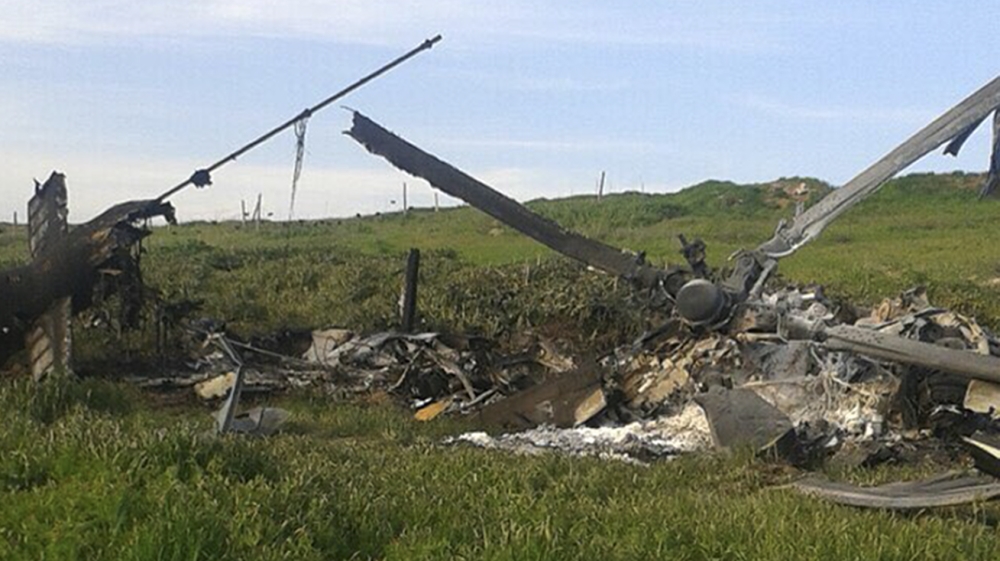
A conflict of nearly three decades, the Armenian occupation of Nagorno-Karabakh and the seven surrounding regions continues to be a matter that necessitates serious attention. While Armenia has been trying to sustain the unlawful situation in Nagorno-Karabakh, the third parties’ failure in facilitating the resolution of the conflict has contributed to the maintenance of the status quo that is a major source of instability in the South Caucasus with a potential to turn into a serious confrontation between the two sides. Correspondingly, the recently published report titled “Legal Opinion on Third Party Obligations with Respect to Illegal Economic and Other Activities in the Occupied Territories of Azerbaijan”,[1] which was prepared by Prof. Alain Pellet[2] and circulated as a United Nations General Assembly and the Security Council document, draws a general legal context of the situation in Nagorno-Karabakh and reveals the wrongful acts of Armenia in the occupied territories of Azerbaijan. The report elaborates on the legal consequences arising from the direct or indirect involvement of third States, as well as natural and legal persons, the responsibility of third parties (states, natural and legal persons) involved in the illegal activities of Armenia, and measures that might be taken by international community.
The report explains in detail that according to international law, the “secession” of Nagorno-Karabakh cannot be justified on the basis of the right of peoples to self-determination. This is due to a) the unlawful use of force of Armenia, and b) the violation of Azerbaijan’s sovereignty and territorial integrity. Therefore, the report concludes that the situation prevailing in Nagorno-Karabakh is that of a belligerent occupation by Armenia.[3]
The report reveals several contradictions within the Armenian discourse. For instance, Armenia claims that the “Armenians of Nagorno-Karabakh exercised their right to self-determination of which they had been deprived by Azerbaijan since, on 26 November 1991, the Azerbaijani Parliament had abolished the autonomy previously enjoyed by Nagorno-Karabakh”. However, the report argues that this argument is contradictory: “it shows that up to the armed conflict Nagorno-Karabakh and its inhabitants enjoyed a status of autonomy, which seems, without much doubt, largely correspond to the generally admitted standard of self-determination.” Therefore it is stated in the report that the deprivation of autonomy was the consequence, not the cause, of the armed conflict. Indicating that the right to self-determination is “a people’s pursuit of its political, economic, social and cultural development within the framework of an existing state”, the report states that the right to self-determination can mean the right to independence/secession in specific conditions that is not the case with regard to Nagorno-Karabakh: in cases of “alien subjugation, domination and exploitation” or cases involving “colonial or occupied peoples.”[4] Therefore, the report, states that population of Nagorno-Karabakh can only be granted “the highest degree of self-rule within Azerbaijan” but not independence.[5]
Another noteworthy contradiction involves Armenia’s stance with regard to the so-called “Nagorno-Karabakh Republic” (NKR). The Government of Armenia claims “the ‘NKR’ is a sovereign, independent state possessing all the characteristics of an independent state under international law” and it exercises “control and jurisdiction over Nagorno-Karabakh and the territories surrounding it.” However, the report points to the fact that the “NKR” has not been formally recognized as a State by the Republic of Armenia itself, let alone by other countries,[6] suggesting that even Armenia is well-aware that its hands are tied since it is in breach of Charter of the United Nations as Article 2 of the Convention states that “All Members shall refrain in their international relations from the threat or use of force against the territorial integrity or political independence of any state, or in any other manner inconsistent with the Purposes of the United Nations.”
Armenia has been using the argument of the independence of “NKR” to divert attention away from Armenia’s involvement in the Karabakh conflict and paint “NKR” as the direct party of the conflict to avoid any responsibility in the face of international law. However, as mentioned in the report, “there seems to be little doubt that the situation prevailing in Nagorno-Karabakh is the result of the use of military force by Armenia. In spite of Armenia’s weak and unpersuasive denials, this military involvement was in fact acknowledged by the highest Armenian authorities and is attested from numerous various independent sources.”[7] Furthermore, the European Court of Human Rights (ECtHR), in its verdict regarding Chiragov and Others v. Armenia case, which is also quoted at length in the said report, confirms that Nagorno-Karabakh and the surrounding territories are under Armenia’s occupation by highlighting Armenia’s “effective control” in the said regions:[8]
“[…]the Republic of Armenia, from the early days of the Nagorno-Karabakh conflict, has had a significant and decisive influence over the ‘NKR’, that the two entities are highly integrated in virtually all important matters and that this situation persists to this day. In other words, the ‘NKR’ and its administration survives by virtue of the military, political, financial and other support given to it by Armenia which, consequently, exercises effective control over Nagorno-Karabakh and the surrounding territories, including the district of Lachin.”
The report also points out that the Azerbaijanis in Nagorno-Karabakh and the surrounding districts were victims of an ethnic cleansing.[9] Before the war, the Azerbaijani population constituted around 25 per cent of the population of the Nagorno-Karabakh and the exclusive population of the surrounding territories. Now, the Armenian population is estimated to be around 95 per cent of the total population of this area. This change has been due to the actions of the Armenian forces as well as the establishment of settlements and transfer of populations that resulted in the above demographic change; while casting out the native Azerbaijani population of the occupied Azerbaijani territories, Armenia has been settling ethnic Armenians in these territories since the very beginning. These are violations of the law of belligerent occupation, particularly Article 43 of the 1907 Hague Regulations and Article 49 of the Fourth Geneva Convention of 1949. Indeed, especially in recent years following the crisis in Syria, Armenia has been in an effort to settle Syrian Armenians in the occupied territories of Azerbaijan.
Apart from these unlawful settlement policies, the report also elaborates on numerous other illegal activities of Armenia and its serious breaches of obligations arising from norms of international law (the exploitation of the Azerbaijani natural resources in the occupied territories, the alteration of the cultural heritage of the region, promotion of the occupied territories as a touristic destination, organization of illegal visits and other activities, changes in the infrastructures and exploitation of the telecommunication network, etc.), all of which are also explained in detail in the Azerbaijani Foreign Ministry’s report titled “Illegal Economic and Other Activities in the Occupied Territories of Azerbaijan”.[10] All these activities can be can be regarded as an attempt to “Armenianize” the occupied territories of Azerbaijan, further complicate the settlement of the Nagorno-Karabakh conflict and thus, sustain and benefit from the status quo in the region. Unfortunately, third country companies via their economic activities and organizations under the name of “humanitarian assistance”[11] have been also contributing to the adverse unlawful situation in the occupied territories.
Consequently, the report points out that, under international law, third countries are responsible to take the following measures: a) the non-recognition of the situation created by the above-mentioned serious breaches; b) the prohibition of aid or assistance in maintaining that situation; and c) the exclusion of any immunities for the authors of these serious breaches. The report also indicates that all states are required to invoke the responsibility of Armenia and to take measures against it, including by means of sanctions, as well as criminal prosecutions and civil proceedings.[12]
Indeed, as explained in the 57-page report, third countries must avoid any actions contributing to the maintenance of a status quo in the occupied territories of Azerbaijan. Yet, it can be observed that there is an opposite stance especially in the West, as proven for instance by the recent visit of Belgian parliamentarians to Nagorno-Karabakh.[13] Unfortunately, such moves acknowledging the Armenian occupation of Azerbaijani territories hamper the efforts towards the resolution of the Nagorno-Karabakh conflict, and by doing that, increase the possibility of eruption of a full-scale war in this volatile region. Therefore, third countries would be well-advised to adopt a firmer stance against Armenia’s activities and to avoid any action that would compromise a settlement in the region in accordance with international law and the territorial integrity of Azerbaijan. The international community must pay serious attention to keeping the basic international legal principles intact, especially in the case of Nagorno-Karabakh conflict.
*Photo: Al Jazeera
[1] “Annex to the letter dated 10 April 2017 from the Permanent Representative of Azerbaijan to the United Nations addressed to the Secretary-General, Legal Opinion on Third Party Obligations with Respect to Illegal Economic and Other Activities in the Occupied Territories of Azerbaijan” (United Nations, April 26, 2017), A/71/880–S/2017/31, accessed May 30, 2017, http://mfa.gov.az/files/file/Responsibility_of_States_for_internationally_wrongful_acts.pdf.
[2] Allain Pellet is a professor emeritus at the Université Paris Ouest Nanterre and a former member (1990-2011) and Chair (1997) of the United Nations International Law Commission.
[3] “Annex to the letter dated 10 April 2017 from the Permanent Representative of Azerbaijan to the United Nations addressed to the Secretary-General, Legal Opinion on Third Party Obligations with Respect to Illegal Economic and Other Activities in the Occupied Territories of Azerbaijan”, 7-10.
[4] Ibid., 9.
[5] Ibid., 10.
[6] Ibid., 20-21.
[7] Ibid., 10.
[8]For more information about the ECtHR’s judgement on the Chiragov and Others v. Armenia, see:
Turgut Tuncel, “The Nagorno-Karabakh Issue from a Juridical Point of View: The Case of Chiragov and Others v. Armenia”, AVİM, June 26, 2015, accessed May 30, 2017, http://avim.org.tr/en/Analiz/THE-NAGORNO-KARABAKH-ISSUE-FROM-A-JURIDICAL-POINT-OF-VIEW-THE-CASE-OF-CHIRAGOV-AND-OTHERS-V-ARMENIA.
[9] “Annex to the letter dated 10 April 2017 from the Permanent Representative of Azerbaijan to the United Nations addressed to the Secretary-General, Legal Opinion on Third Party Obligations with Respect to Illegal Economic and Other Activities in the Occupied Territories of Azerbaijan”, 28.
[10] “llegal Economic and Other Activities in the Occupied Territories of Azerbaijan”, Ministry of Foreign Affairs of the Republic of Azerbaijan, 2016, accessed May 30, 2017, http://mfa.gov.az/files/file/MFA_Report_on_the_occupied_territories_March_2016_1.pdf.
[11] For instance, see: Aslan Yavuz Şir, “HALO Trust ve Karabağ’daki Faaliyetleri”, AVİM, July 21, 2013, accessed May 30, 2017, http://avim.org.tr/tr/Yorum/HALO-TRUST-VE-KARABAG-DAKI-FAALIYETLERI.
[12] “Annex to the letter dated 10 April 2017 from the Permanent Representative of Azerbaijan to the United Nations addressed to the Secretary-General, Legal Opinion on Third Party Obligations with Respect to Illegal Economic and Other Activities in the Occupied Territories of Azerbaijan”, 56-57.
[13] Aslan Yavuz Şir, “Armenian Attempts for the Recognition of Nagorno Karabakh and Belgian Parliamentarians’ Visit to Stepanakert”, AVİM, March 27, 2017, accessed May 30, 2017, http://avim.org.tr/en/Yorum/ARMENIAN-ATTEMPTS-FOR-THE-RECOGNITION-OF-NAGORNO-KARABAKH-AND-BELGIAN-PARLIAMANTERIANS-VISIT-TO-STEPANAKERT.
© 2009-2025 Center for Eurasian Studies (AVİM) All Rights Reserved
No comments yet.
-
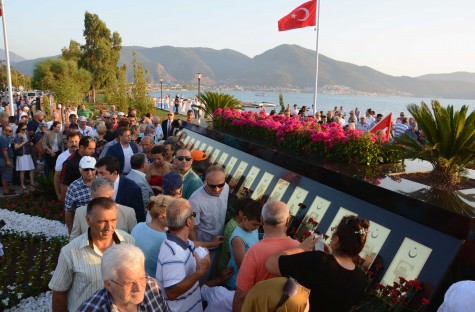 MONUMENT ERECTED IN FETHIYE FOR TURKISH DIPLOMATS ASSASSINATED BY ARMENIAN TERRORISM
MONUMENT ERECTED IN FETHIYE FOR TURKISH DIPLOMATS ASSASSINATED BY ARMENIAN TERRORISM
Ali Murat TAŞKENT 01.09.2015 -
 ARMENIAN ALLEGATIONS DO NOT HOLD WATER BEFORE JUDICIARY
ARMENIAN ALLEGATIONS DO NOT HOLD WATER BEFORE JUDICIARY
Ali Murat TAŞKENT 27.01.2017 -
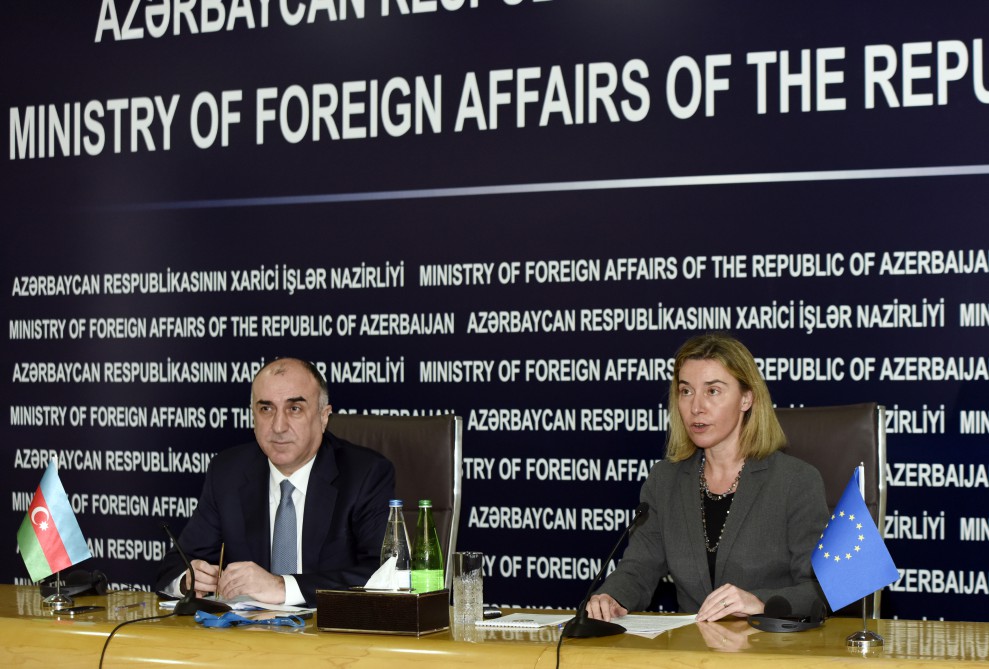 EU’S APPROACH TO AZERBAIJAN AND ARMENIA: REALPOLITIK OR DOUBLE STANDARDS?
EU’S APPROACH TO AZERBAIJAN AND ARMENIA: REALPOLITIK OR DOUBLE STANDARDS?
Ali Murat TAŞKENT 10.03.2016 -
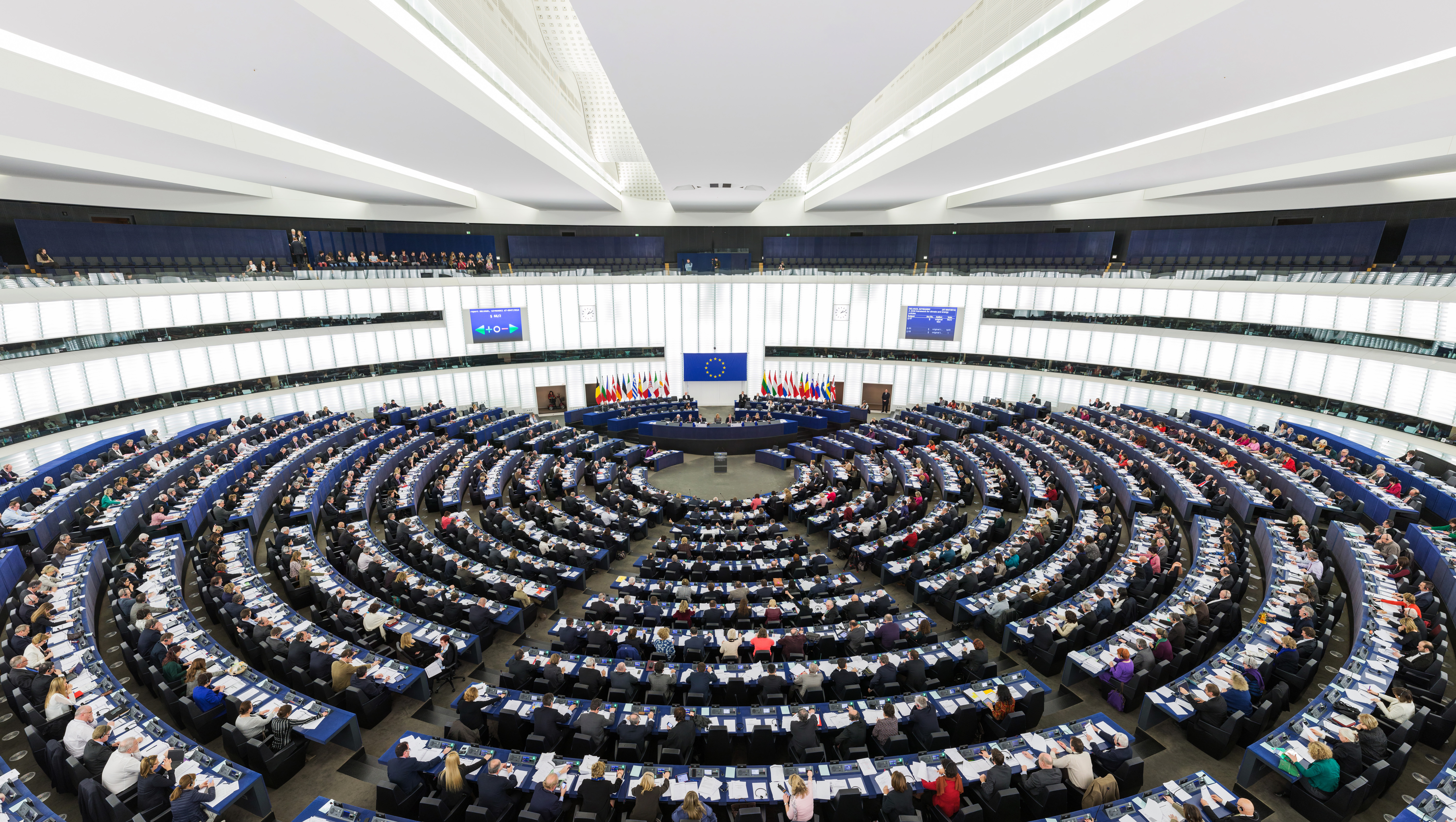 THE EUROPEAN PARLIAMENT AND ITS RESOLUTION ON THE 2015 PROGRESS REPORT ON TURKEY
THE EUROPEAN PARLIAMENT AND ITS RESOLUTION ON THE 2015 PROGRESS REPORT ON TURKEY
Ali Murat TAŞKENT 20.04.2016 -
 EU TO START NEW NEGOTIATIONS WITH ARMENIA ON A NEW AGREEMENT
EU TO START NEW NEGOTIATIONS WITH ARMENIA ON A NEW AGREEMENT
Ali Murat TAŞKENT 18.10.2015
-
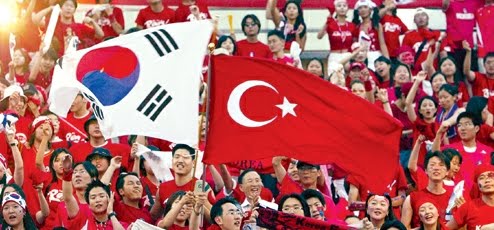 TURKEY AND KOREA DRAWING CLOSER
TURKEY AND KOREA DRAWING CLOSER
S. Işık BORA 27.11.2017 -
 THE EU-RUSSIAN RELATIONS AND THE UKRAINIAN CONFLICT. THE ENERGY UNION, ASSOCIATION AGREEMENT AND GAS NEGOTIATIONS: WHOSE INTERESTS ARE AT STAKE?
THE EU-RUSSIAN RELATIONS AND THE UKRAINIAN CONFLICT. THE ENERGY UNION, ASSOCIATION AGREEMENT AND GAS NEGOTIATIONS: WHOSE INTERESTS ARE AT STAKE?
Maryna SHEVTSOVA 26.04.2015 -
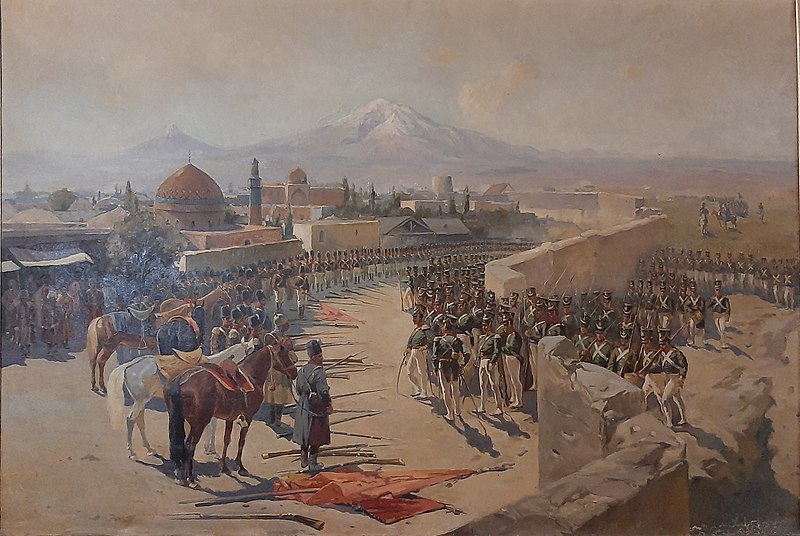 A NEW TENSION EMERGING IN THE SOUTH CAUCASUS CONCERNING THE ISSUE OF RELIGIOUS REPRESENTATION
A NEW TENSION EMERGING IN THE SOUTH CAUCASUS CONCERNING THE ISSUE OF RELIGIOUS REPRESENTATION
İlaha KHANTAMİROVA 31.07.2025 -
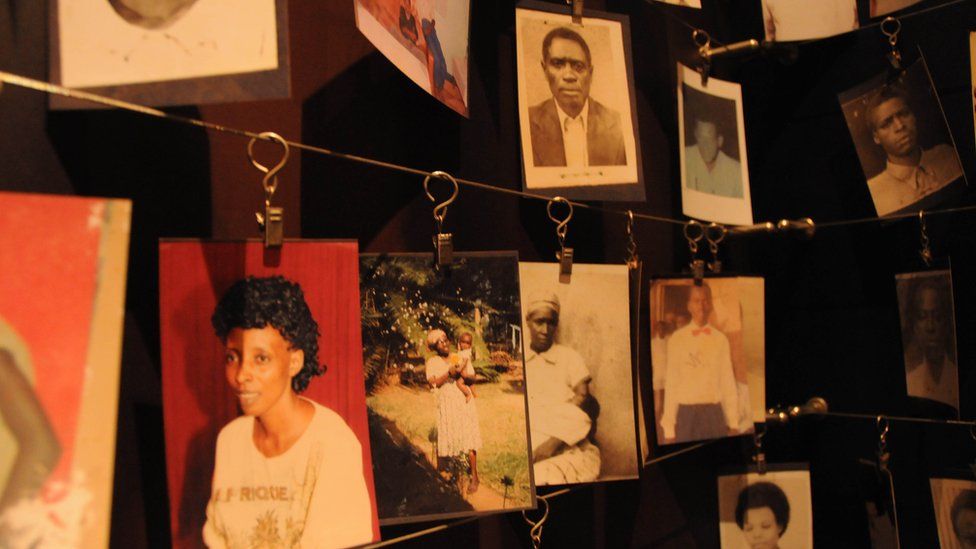 FRANCE FAILS TO ACCEPT ITS RESPONSIBILITY FOR THE RWANDAN GENOCIDE
FRANCE FAILS TO ACCEPT ITS RESPONSIBILITY FOR THE RWANDAN GENOCIDE
Gülperi GÜNGÖR 11.06.2021 -
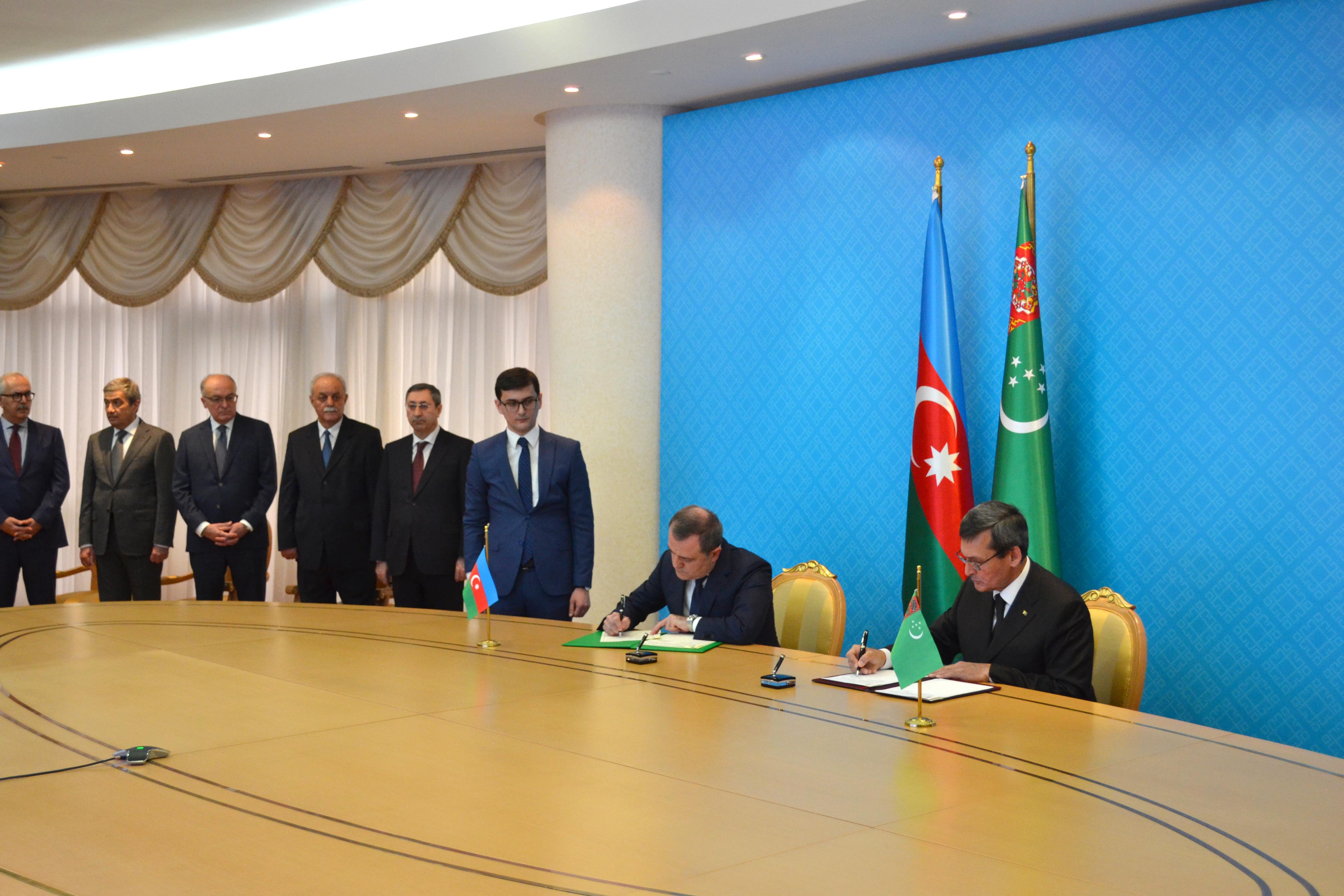 THE AZERBAIJAN-TURKMENISTAN AGREEMENT FROM A TURKISH PERSPECTIVE
THE AZERBAIJAN-TURKMENISTAN AGREEMENT FROM A TURKISH PERSPECTIVE
AVİM 11.02.2021
-
25.01.2016
THE ARMENIAN QUESTION - BASIC KNOWLEDGE AND DOCUMENTATION -
12.06.2024
THE TRUTH WILL OUT -
27.03.2023
RADİKAL ERMENİ UNSURLARCA GERÇEKLEŞTİRİLEN MEZALİMLER VE VANDALİZM -
17.03.2023
PATRIOTISM PERVERTED -
23.02.2023
MEN ARE LIKE THAT -
03.02.2023
BAKÜ-TİFLİS-CEYHAN BORU HATTININ YAŞANAN TARİHİ -
16.12.2022
INTERNATIONAL SCHOLARS ON THE EVENTS OF 1915 -
07.12.2022
FAKE PHOTOS AND THE ARMENIAN PROPAGANDA -
07.12.2022
ERMENİ PROPAGANDASI VE SAHTE RESİMLER -
01.01.2022
A Letter From Japan - Strategically Mum: The Silence of the Armenians -
01.01.2022
Japonya'dan Bir Mektup - Stratejik Suskunluk: Ermenilerin Sessizliği -
03.06.2020
Anastas Mikoyan: Confessions of an Armenian Bolshevik -
08.04.2020
Sovyet Sonrası Ukrayna’da Devlet, Toplum ve Siyaset - Değişen Dinamikler, Dönüşen Kimlikler -
12.06.2018
Ermeni Sorunuyla İlgili İngiliz Belgeleri (1912-1923) - British Documents on Armenian Question (1912-1923) -
02.12.2016
Turkish-Russian Academics: A Historical Study on the Caucasus -
01.07.2016
Gürcistan'daki Müslüman Topluluklar: Azınlık Hakları, Kimlik, Siyaset -
10.03.2016
Armenian Diaspora: Diaspora, State and the Imagination of the Republic of Armenia -
24.01.2016
ERMENİ SORUNU - TEMEL BİLGİ VE BELGELER (2. BASKI)
-
AVİM Conference Hall 24.01.2023
CONFERENCE TITLED “HUNGARY’S PERSPECTIVES ON THE TURKIC WORLD"









